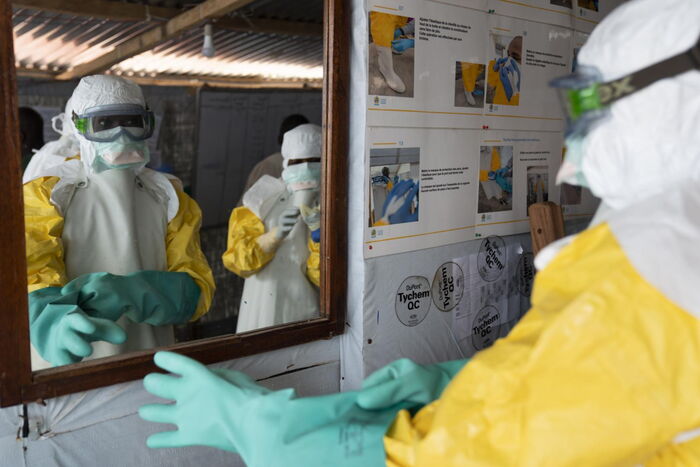On January 31, 2025, the Ministry of Health in Kenya issued an urgent health advisory following the announcement of an Ebola outbreak in Uganda.
The outbreak, which has already claimed one life, was confirmed by Uganda’s Ministry of Health on January 30, 2025, and involves the Sudan strain of the Ebola Virus Disease (EVD) in the capital, Kampala.
In light of this, the Ministry of Health in Kenya, led by CS Deborah Barasa, has advised the public to avoid any contact with wild animals, both living and dead, including their meat, waste, and fluids.
This includes taking extra precautions against engaging in unprotected sexual activities, as the virus can easily be transmitted through both animals and their products.
Ebola Virus Disease (EVD) is known for its high fatality rate, with a death rate of up to 90%. It is a severe and often deadly disease that spreads rapidly through contact with the bodily fluids, blood, and secretions of infected humans or animals.
The virus can also survive on contaminated surfaces, including clothing and bedding. Those who come in contact with such fluids or surfaces are at a high risk of being infected.
Symptoms of Ebola typically begin suddenly and include fever, severe headaches, diarrhea, vomiting, and body aches.
In the later stages, the disease can cause bleeding, often from openings in the body like the mouth, nose, and rectum.
These symptoms are a sign that the disease is progressing and may become fatal if not treated immediately.
The Ministry has stressed the importance of seeking immediate medical attention if any symptoms appear.
Early diagnosis and treatment are crucial for improving survival chances and preventing the spread of the disease.
The Ministry also advised against treating suspected Ebola patients at home, emphasizing the need to seek professional medical care in certified health facilities to receive the appropriate treatment.
For individuals who have been in close contact with someone diagnosed with Ebola, they will be closely monitored for a period of 21 days, which is the incubation period for the disease.
This monitoring is critical in ensuring that if symptoms develop, the person can receive early treatment to limit the risk of further transmission.
In cases where the disease proves fatal, the Ministry has reiterated the importance of a safe and dignified burial process.
People are strongly advised not to touch or wash the bodies of individuals who have died from Ebola. Specially trained burial teams have been put in place to handle the deceased in a manner that ensures public safety and reduces the risk of spreading the virus.
The Ministry has urged all Kenyans to follow official health advisories and recommendations from health professionals in order to protect themselves and their communities.
The public is also encouraged to stay informed about the latest updates from health authorities, especially given the highly contagious nature of Ebola.
Background on Ebola
Ebola was first identified in 1976 during an outbreak in the Democratic Republic of Congo (DRC), and since then, it has re-emerged in several African countries.
One of the most devastating Ebola outbreaks occurred between 2013 and 2014, starting in Guinea and spreading to Liberia, Sierra Leone, and other West African nations.
By the end of this outbreak, more than 28,000 people had been infected, with over 11,000 deaths. Healthcare workers were particularly vulnerable, with 5% of the deaths among them.
As of now, authorities in Uganda are working to control the outbreak, while the Kenyan Ministry of Health remains on high alert, ensuring that the public is well-informed and prepared to prevent any possible spread of the disease across borders.
Join Kenyan Gen z and millennials official 2025 WhatsApp Channel To Stay Updated On time the ongoing situation https://whatsapp.com/channel/0029VaWT5gSGufImU8R0DO30


